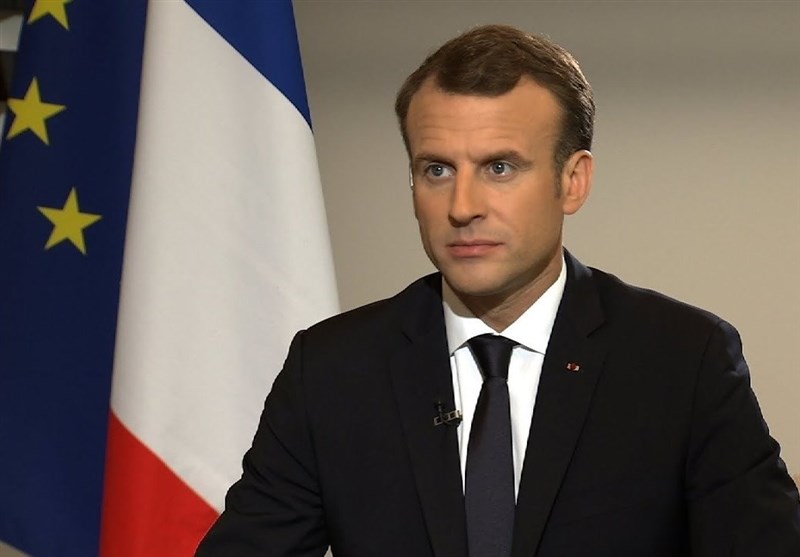Macron to set out fix for 'yellow vest' anger
Tue 16 Apr 2019, 10:49:15

Paris: French President Emmanuel Macron was to set out a series of major policy announcements Monday in response to five months of nationwide "yellow vest" protests, in what has been billed as a make-or-break moment for his presidency.
Yet the task of trying to satisfy the many, sometimes competing demands coiled up in the protests will be a tricky one for the 41-year-old leader, who was elected two years ago on promises of sweeping changes.
His reform drive was abruptly knocked off course by the yellow vests, whose movement erupted in November against social inequality.
Macron responded by embarking on a major voter-listening exercise between January and March called the "Great National Debate", in which grievances were aired during thousands of town hall-style meetings.
"We have decided to transform the anger into solutions," Macron wrote on Twitter. "For several months you told us what you think and we heard... (Monday) night I will respond to you."
The centrist will give a speech at 1800 GMT Monday setting out the "first concrete measures", the presidency told AFP.
One of Macron's aides told AFP that the country could look forward to "a new act" marked by "profound changes" aimed at drawing the line under the enduring and often violent anti-government protests.
Summing up the weight of anticipation on Macron's shoulders Senate leader Gerard Larcher, a member of the opposition Republicans, told Le Figaro newspaper on Saturday: "He won't get a second chance." French media said the content of the speech of Macron could determine whether he wins re-election in 2022.
"It's double or quits for Macron," Le Journal du Dimanche weekly newspaper wrote Sunday.
"Macron's five years is at stake," said Le Figaro Monday, adding that the head of state has "no room for error".
Left-leaning Liberation said Macron had to decide whether to side with conservative supporters or placate those wanting a softer
approach.
approach.
In one of the most important weeks of the president's career, he is also due to hold a press conference at the Elysee on Wednesday in an unusual move for a man who has kept his distance from the French media. What Macron intends to announce has been kept under wraps.
He has much work to do if he is to convince French citizens outside of his hardcore support base that he really cares about them.
According to an Ifop poll published on Sunday, 85 per cent of French think that Macron should pay greater attention to their concerns.
One option Macron is examining is to curb the privileges enjoyed by senior civil servants and former presidents. Another is push ahead with plans to reduce the number of national lawmakers.
Prime Minister Edouard Philippe, who met Macron on Sunday, said last week that the clear message from the nationwide debates was that the French wanted lower taxes.
"We need to lower taxes, and lower them more quickly," Philippe.
The yellow vest movement, named after the fluorescent safety jackets worn by demonstrators, began in rural and small-town France over fuel taxes and quickly snowballed into a broader anti-capitalist, anti-establishment rebellion.
Macron, a former investment banker and ex-economy minister, was caught off guard when protesters began occupying roundabouts to denounce policies widely seen as tilted towards the rich and big business.
Admitting to failures, he unveiled a 10-billion-euro ( 11-billion) package of tax cuts and income top-ups for the working poor and pensioners and travelled into the rural heartland to try to reconnect with voters.
But most yellow vests boycotted the consultations. They accused Macron of prejudging the outcome by taking their top demands -- including the return of a popular "solidarity tax" on the rich which he cut and citizen-sponsored referendums -- off the table from the outset.
No Comments For This Post, Be first to write a Comment.
Most viewed from International
Most viewed from World
AIMIM News
Latest Urdu News
Most Viewed
May 26, 2020
Do you think Canada-India relations will improve under New PM Mark Carney?
Latest Videos View All
Like Us
Home
About Us
Advertise With Us
All Polls
Epaper Archives
Privacy Policy
Contact Us
Download Etemaad App
© 2025 Etemaad Daily News, All Rights Reserved.

.jpg)
.jpg)
.jpg)






.jpg)


.jpg)
.jpg)
.jpg)
.jpg)
.jpg)
.jpg)
.jpg)
.jpg)
.jpg)
.jpg)
.jpg)
.jpg)

















